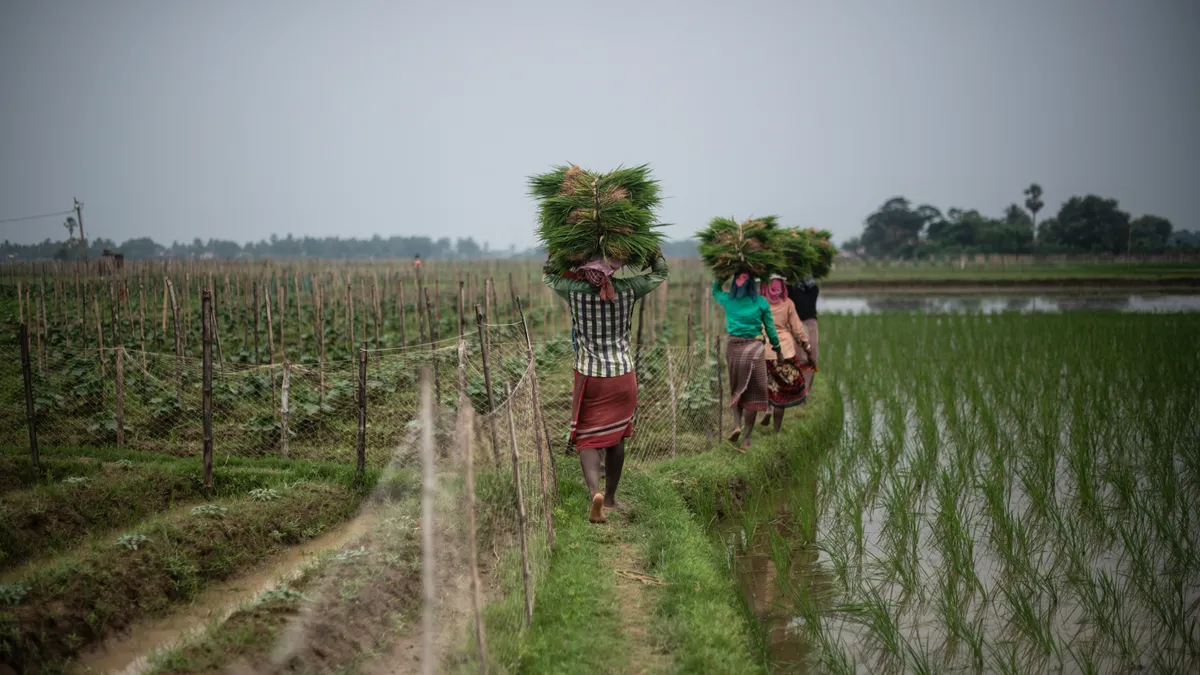Dive Brief:
- Bayer and Shell are collaborating with investment platform GenZero to encourage rice farmers in India to reduce methane emissions through new technologies and production methods, the companies said this week.
- The project encourages farmers to grow rice without continuously flooding fields, which is what allows methane-producing bacteria to thrive. The International Rice Research Institute will assess progress on water and greenhouse gas reductions.
- The initiative expands on a two-year pilot spearheaded by Bayer. The program will encompass 25,000 hectares of rice cultivation in its first year, with the goal of further expansion depending on results.
Dive Insight:
Rice is among the world's most produced crops as it's a staple food for more than half the world's population. However, the water-intensive crop also is responsible for around 10% of global methane emissions, according to the World Bank.
The collaboration between Bayer, Shell's India investment arm and Temasek-owned GenZero aims to incentivize farmers to use less water through techniques limiting the amount of flooding needed. Farmers will grow using two potential production methods: alternate wetting and drying production, which involves controlled and intermittent flooding, and direct seeded rice, which involves no transplanting operations and very limited flooding.
Alternate wetting and drying can reduce water use by up to 30% and decrease methane emissions by 48%, according to the CGIAR Research Program on Climate Change, Agriculture and Food Security.
“Through our focus on rice, we want to solve two of the biggest challenges impacting humanity, namely, food security and climate change,” Simon-Thorsten Wiebusch, country divisional head of Bayer’s crop science division for India, Bangladesh & Sri Lanka, said in a statement. “With this program, we aim to get more insights into how regenerative agricultural practices can contribute to mitigating climate change.”











